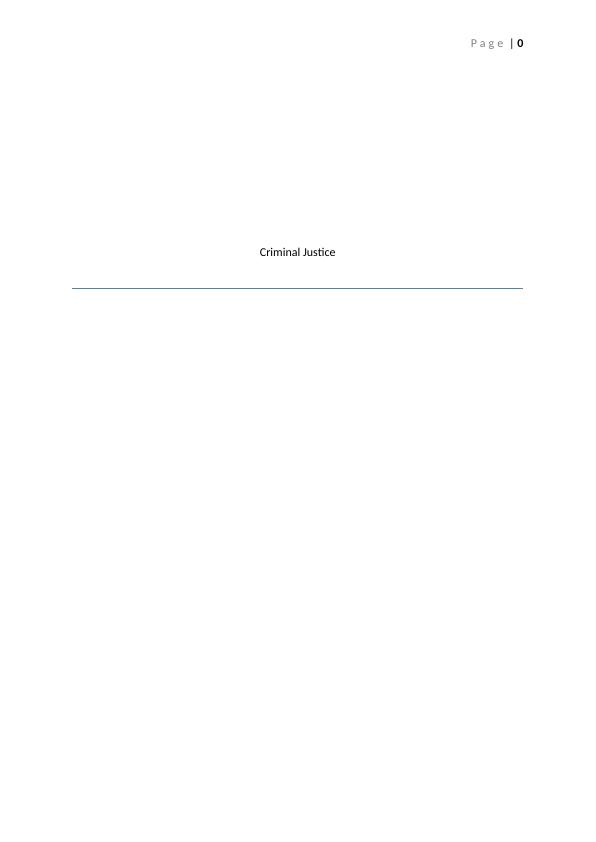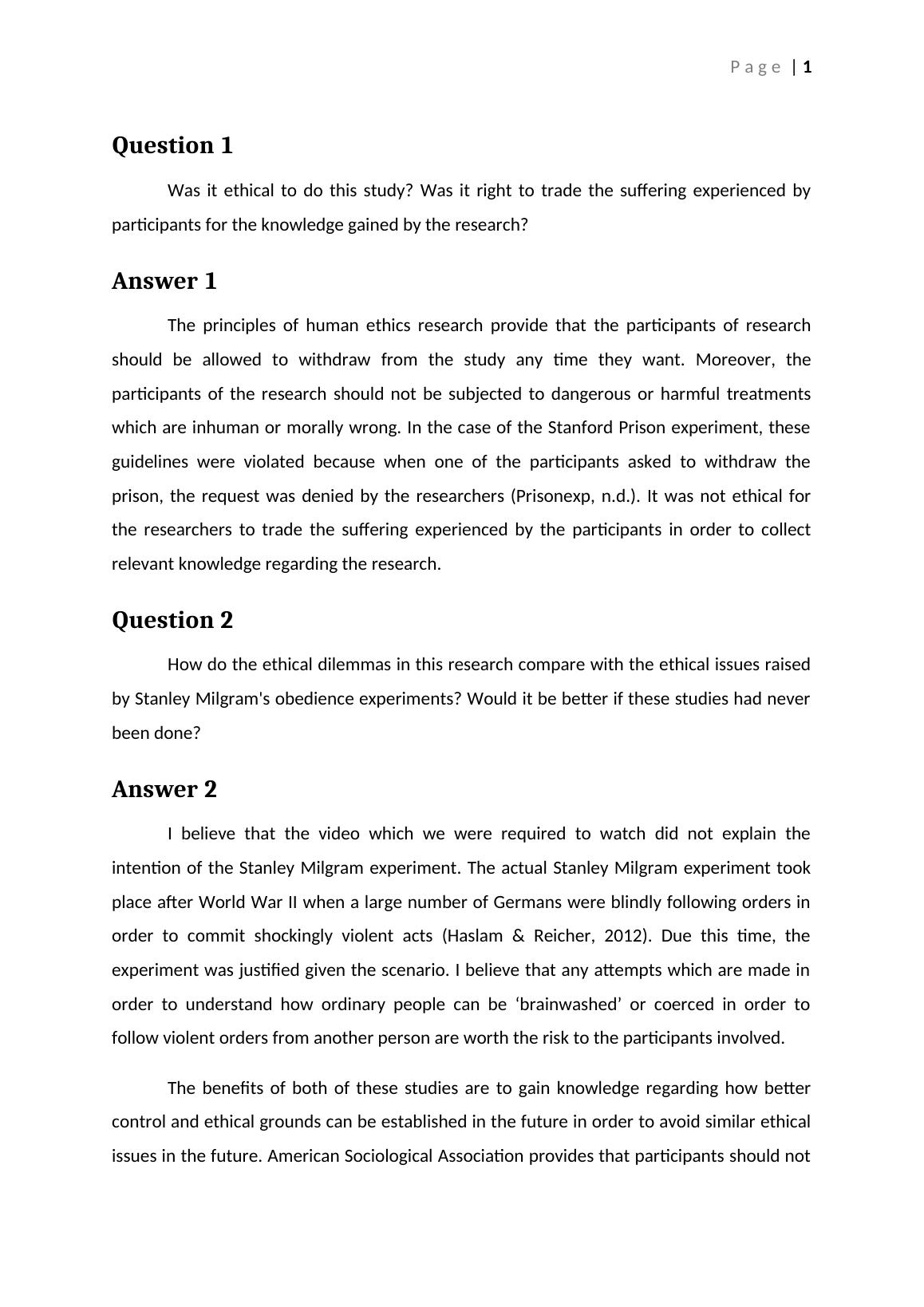Ethical Dilemmas in Stanford Prison Experiment
5 Pages1133 Words475 Views
Added on 2023-04-21
About This Document
This article discusses the ethical dilemmas in the Stanford Prison Experiment and compares them with Stanley Milgram's obedience experiments. It explores the impact of prison situations on human nature and provides recommendations for changing the correctional system in the country.
Ethical Dilemmas in Stanford Prison Experiment
Added on 2023-04-21
ShareRelated Documents
End of preview
Want to access all the pages? Upload your documents or become a member.
Introduction to psychology PDF
|10
|3142
|29
Milgram Experiment Assignment Report
|5
|1216
|41
Milgram's Experiment of Obedience - Reflective Essay
|7
|1717
|312
Similarities and Differences between Milgram's Obedience Studies and Burger's Replication Study
|6
|1332
|258
Psychological Investigation on Obedience to Authority and Decision Making in Workplace
|5
|1243
|269
Virtue Ethics and Corruption
|5
|1009
|57


